Unihertz Titan Slim review
Two-minute review
Before Android and iOS ate the phone market, BlackBerry offered a unique concept with a small screen and physical keyboard combination.
The company, Research in Motion, still exists, but the halcyon days when high-profile users like Barack Obama sported their titular devices are long behind us.
The Unihertz Titan slim isn’t commercially connected to BlackBerry, but it offers a familiar combination of a physical QWERTY keyboard connected to a smartphone.
However, the downside of using physical keys is that it reduces the screen size all the time, and the keys on this phone are very small. Making it challenging for adult-scale hands to use and less useful for viewing streamed content or gaming.
The Titan Slim is built around a P70 MediaTek SoC and comes with 6GB of RAM and 256GB of storage, and it has two Nano SIM slots. Neither of these slots can take a MicroSD card, so the 256GB internal storage is the limit of this design.
For a specification that includes a single 48MP rear camera and an 8MP front-facing sensor, the price is on the high side, especially when compared with some of the Chinese branded rugged designs we’ve recently reviewed.
If you loved your Blackberry, you might find this or others in the Unihertz Titan series of interest, but most phone users are looking for a bigger screen and 5G functionality.
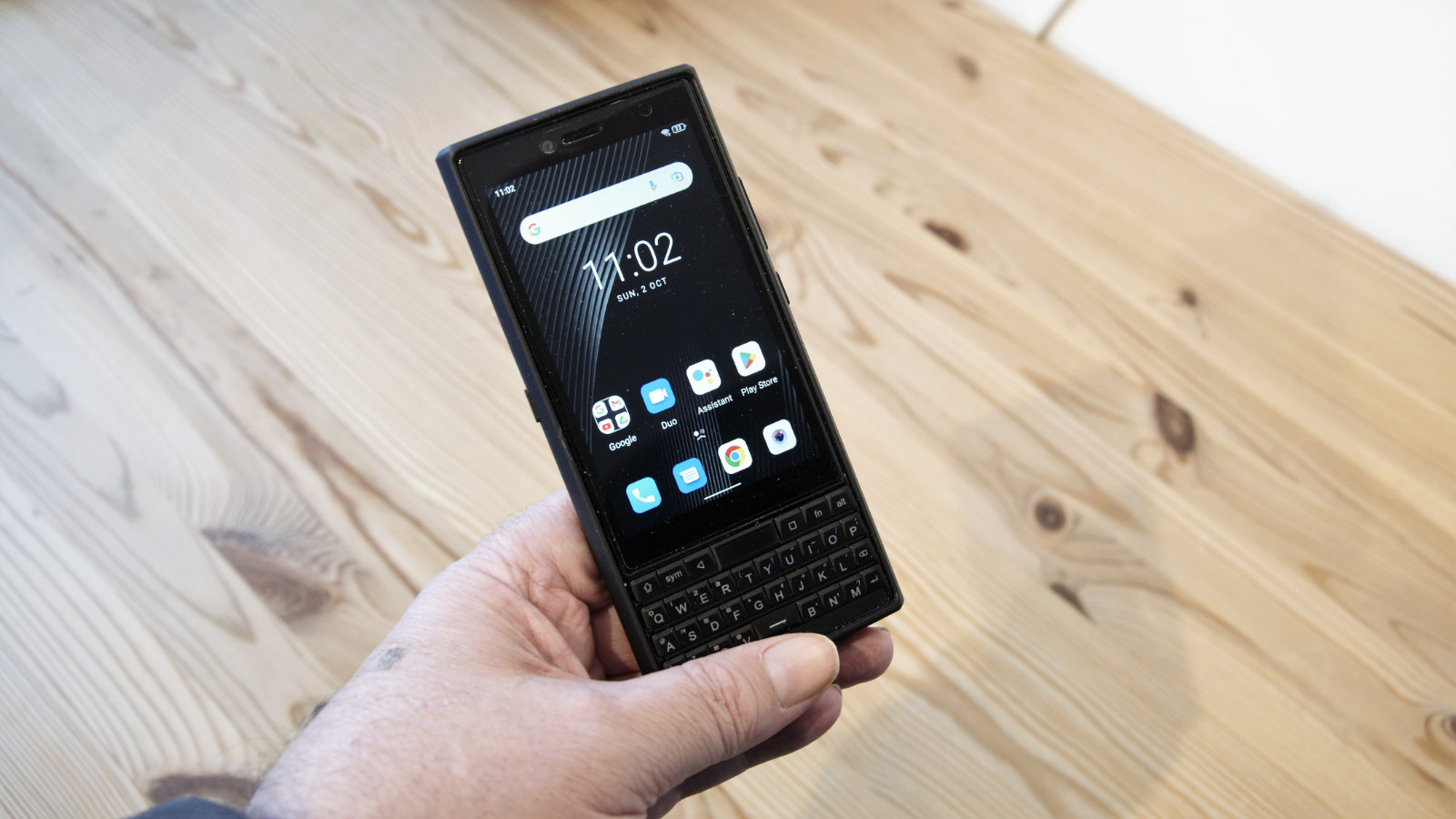
Unihertz Titan slim price and availability
- How much does it cost? $329.99 / £289.99
- When is it out? It is available now
- Where can you get it? You can get it in most regions direct from Unihertz or on Amazon
It is possible to buy the Unihertz Titan Slim direct from the makers with a shipping charge that is around $15 for most regions. However, it is sold on both Amazon and AliExpress, if you prefer those outlets.
The only issue is that, due to a national holiday, the maker won’t be shipping between September 29th and October 10th 2022.
The one and only SKU in this series cost $329.99 (£289.99), and included in that package are the phone, headphone adapters (from USB-C), USB-C to USB-A cable, screen protector and TPU case. There is no charger provided.
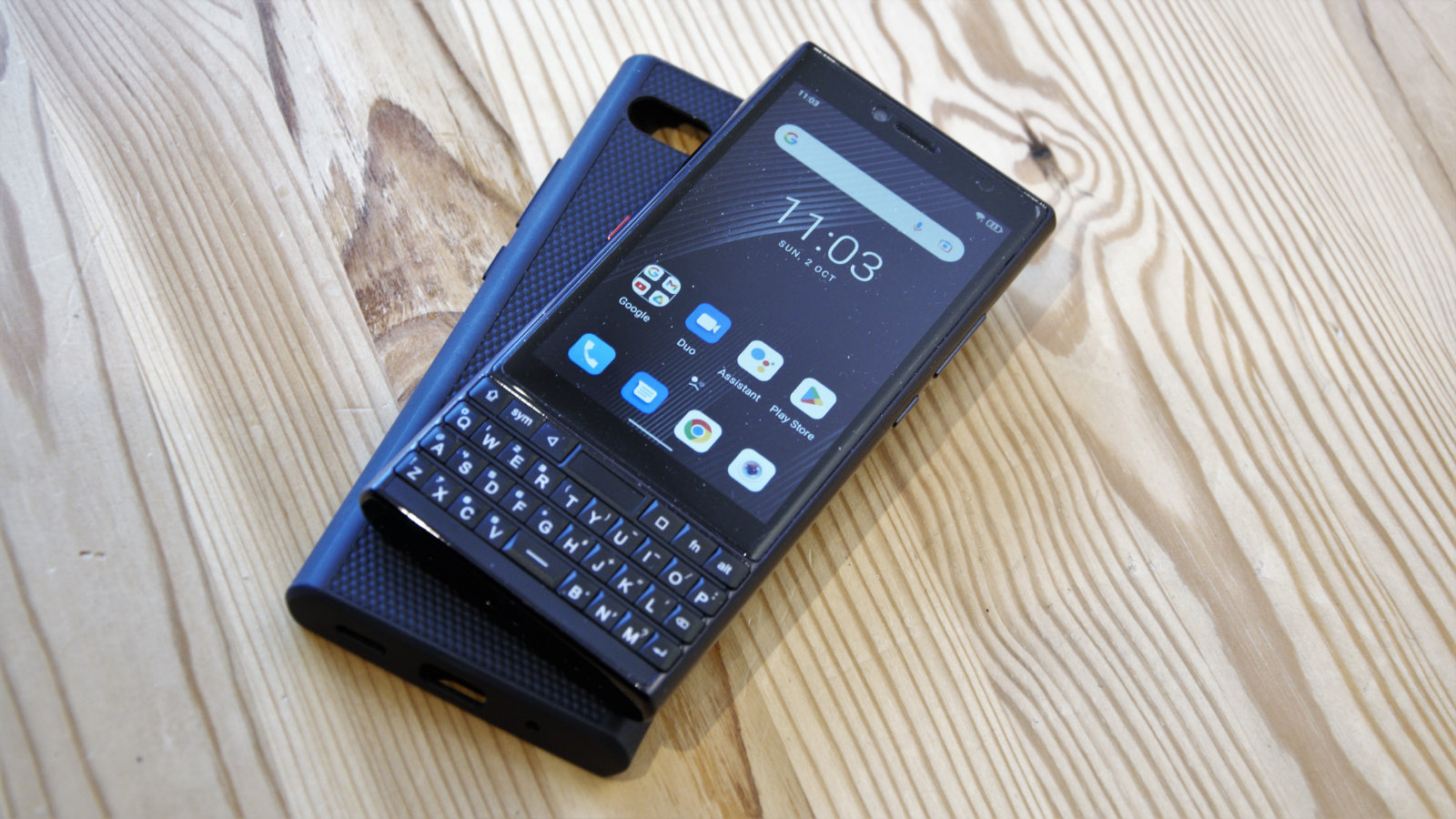
- Value score: 3.5/5
Unihertz Titan slim design
- BlackBerry style keyboard
- Small screen for modern phone
- Comes with a protective cover
As designs go, the Unihertz Titan Slim is basic, at least on the outside.
The chassis is a 15cm long and 7cm wide block with rounded sides.
It comes mounting inside its TPU bumper and with a screen protector already installed, but to access the SIM slots, this will need to be removed. Having two physical SIM slots seems an unnecessary complication since most phones use a single frame that can hold two SIMs.
The button layout is one we’re all familiar with; the power button on the right alongside the volume controls and a use-definable key on the left.
We say User-defined, but on the review phone, we could only get this button to turn the flashlight on, and where this might be switched to other functions evaded our searches.
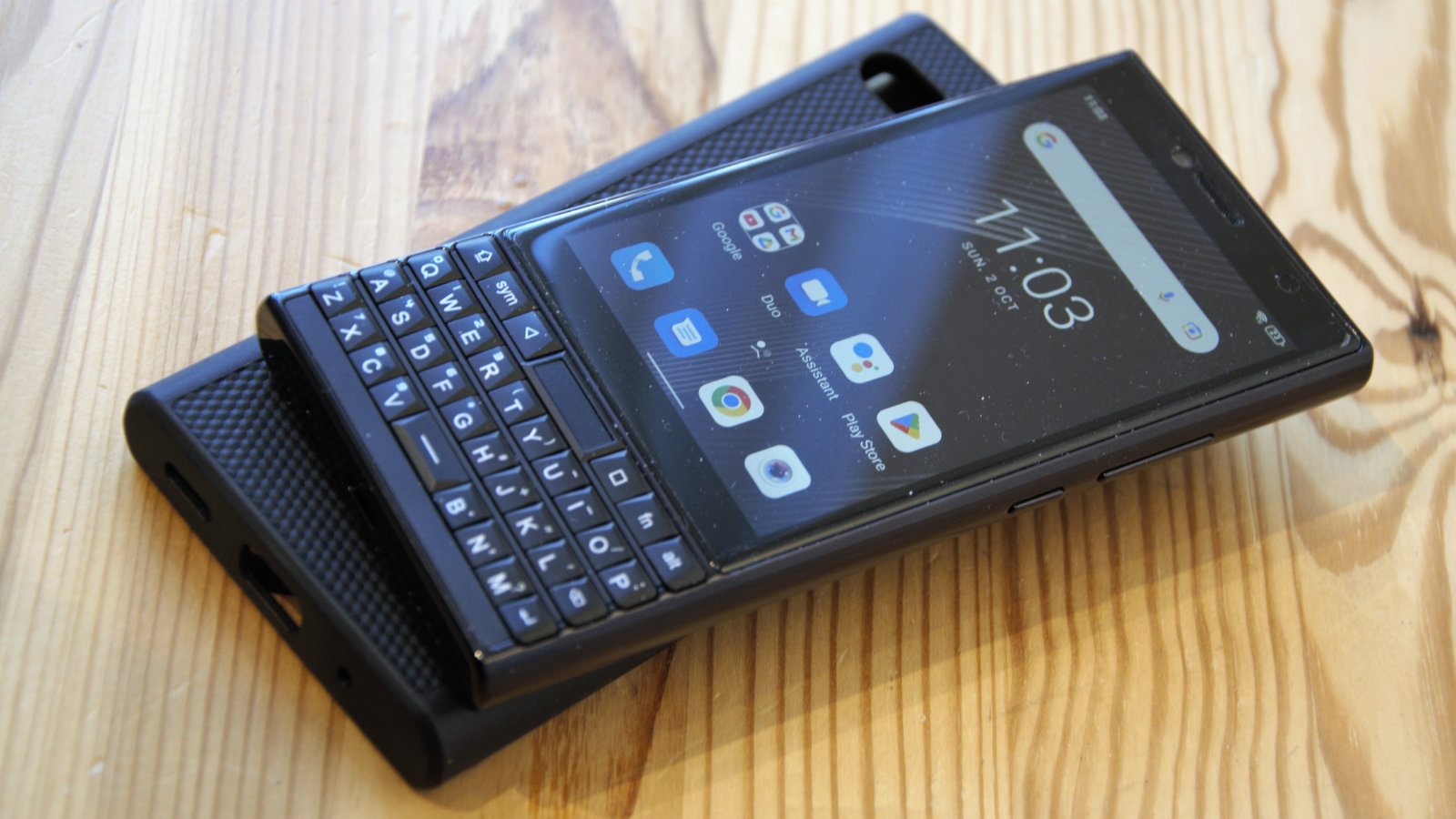
On the rear is a single camera lens with an associated flash, and there is a forward-facing camera on the front to the top left of centre.
But the feature that stands out more than any other here is the BlackBerry-like QWERTY keyboard along the bottom of the 4.5-inch screen. There are four rows of keys that, with shifted options, can offer numeric along with alpha keys and a few symbols. When this is used for inputting, additional key options, like numbers, are displayed on the touch display to make for easier access.
What’s interesting about the extra screen keys is how much easier they are to use than the physical ones, which was something of a chin-rubbing moment for this reviewer.
As part of the keyboard, a fingerprint sensor is included that is best placed to be operated with the thumb. With a central placement, it should work equally well for those that are left or right-handed.
If we used a single word to describe the Titan Slim, it would be understated.
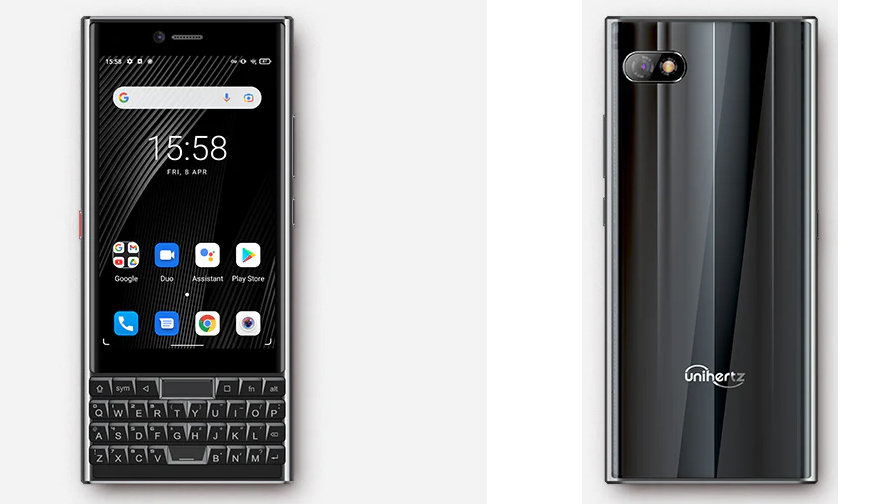
Design score: 3.5/5
Unihertz Titan slim hardware
- 256GB of storage, but no MicroSD card expansion
- 1080p capture but only 720p playback
- Capable SoC
The Unihertz Titan Slim that was sent to us for review came with the following hardware:
CPU: MediaTek Helio P70
GPU: Mali-G72 MP3
RAM: 6GB LPDDR4X
Storage: 256GB
Screen: 4.2 " IPS TFT
Resolution: 1280 x 768
SIM: Dual Nano SIM (No MicroSD)
Weight: 360g
Dimensions: 146.8 x 67.6 x 12.7 mm
Rear cameras: 48MP Samsung S5KGM1 sensor
Front camera: 8MP Samsung S5K4H7 sensor
OS: Android 12
Battery: 4100mAh
Many Chinese phone makers have adopted a MediaTek SoC as a platform since they provide numerous cores and have a substantial track record of being ideal for Android.
The Titan Slim was built around the MediaTek Helio P70 series, a reasonably powerful chip designed for general phone use where gaming isn’t a requirement.
Here the SoC is combined with 6GB of RAM and 256GB of storage, more than sufficient for most uses. The lack of a MicroSD card option caps the total storage, but it’s a very large default amount and goes some way to justify the cost of the Titan slim.
With about a quarter of the front face allocated to the keyboard, the IPS display is reduced to 4.2-inches corner-to-corner and a relatively low resolution of only 1280 x 768, a little more than 720p.
However, the included GPU doesn’t adhere to Widevine CRM standard above L3, meaning that using this to stream Amazon or Netflix will deliver only 480p resolution video to the screen. Curiously, the phone can capture 1080p video, but it can’t display that in full quality.
The other significant drawback of this hardware is that it doesn’t support 5G. In some regions, 5G isn’t yet an option, but in those where it is, reverting to 4G would be considered retrograde.
Perhaps we’ve all been spoiled by the battery sizes on the latest Apple and Samsung devices, but the 4100mAh in the Titan Slim is on the small side of what phones can come with now. But compared to some of the rugged phone designs by Armor, AGM and BlackView, battery capacity isn’t huge.
Countering the battery size is the small screen and the relatively efficient SoC, allowing the Titan Slim to operate for days without a recharge.
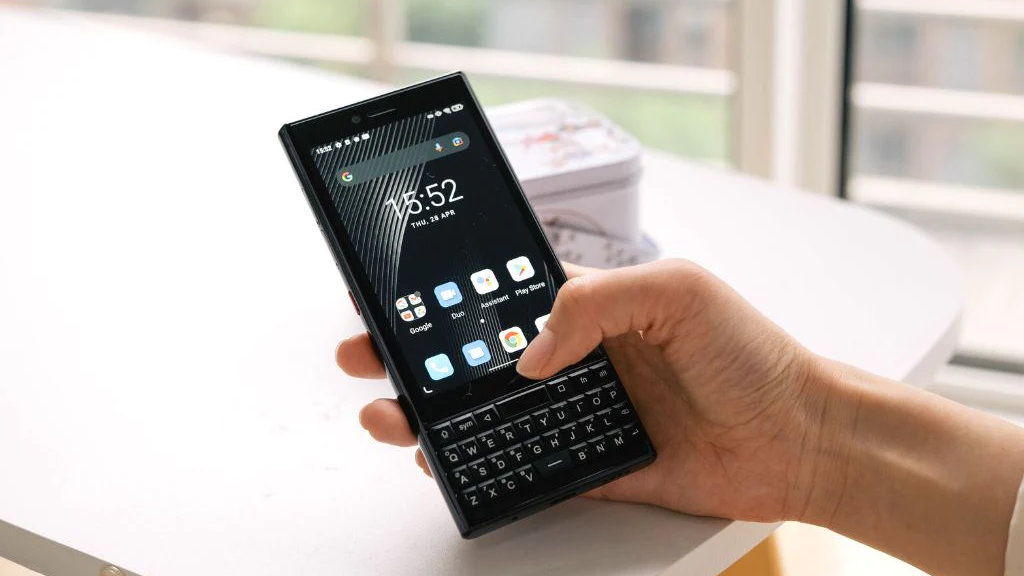
- Hardware score: 4/5
Unihertz Titan slim cameras
- 48MP main and 8MP front
- Samsung sensors offer high-quality captures
- Lacks extra sensors for macro and depth control
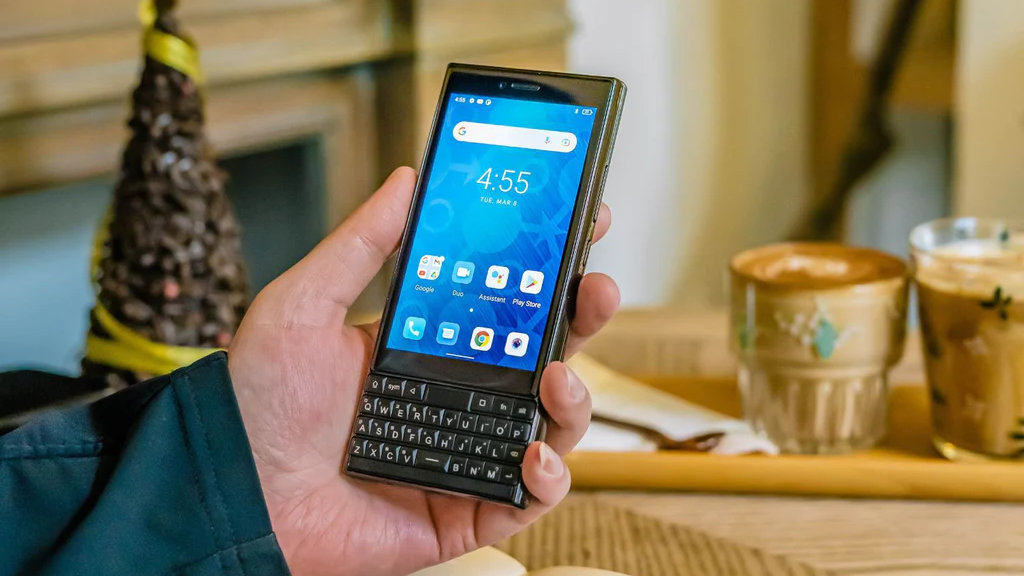
The Unihertz Titan slim has just two cameras:
- A 48MP Samsung S5KGM1 sensor
- A 8MP Samsung S5K4H7 sensor
It’s interesting to note that most phone makers aren’t using sensors that can capture 4K video, or if they do use one, as in the Samsung S5KGM1 used here, they don’t implement it in the camera app.
We’ve already hinted probably why the maximum video resolution is 1080p, but the sensor is underutilised in the role of video capture.
For still image work, the Samsung S5KGM1 produces some admirable results, with a maximum resolution of 8000 x 6000. However, it’s the only sensor, so no options exist for macro photography or depth-of-field cleverness using extra sensors and optics.
Unihertz provided an excellent rear sensor but failed to exploit it with the camera app or with additional sensors to provide for alternative shooting modes.
The selection of special modes in the photo is on the disappointing side, with no panoramic mode and the single special capture function being Timelapse. There is a PRO camera mode that allows you to decide on Exposure, ISO and white balance, but that’s about it.
The front-facing sensor is an 8MP Samsung S5K4H7, and it's adequate for typical face-time requirements.
Camera samples











- Camera score: 3.5/5
Unihertz Titan Slim performance
- Uses the MediaTek Helio P70 SoC
- Not a gaming phone
- Good performance for the price
This is how the Unihertz Titan Slim performed in our suite of benchmark tests:
Geekbench: 308 (single-core); 1432 (multi-core); 1360(OpenCL)
PCMark (Work 3.0): 6803
Passmark: 6989
Passmark CPU: 3365
3DMark Slingshot: 1871 (OGL)
3DMark Slingshot Extreme: 1393 (OGL); 1456 (Vulkan)
3DMark Wild Life: 735
HWBot Prime: 5885
Depending on how you view these results, the Titan Slim is more powerful than most small phone designs but is less capable than many ordinary Android phones at a similar price point.
Overall, PCMark, HWBot Prime, and PassMark results are all respectable and demonstrate that the Helio P70 has decent performance. But, where this SoC shows its limitations are when it's required to deliver graphics punch.
The numbers here are very similar to phones that use the Helio G85, a sibling SoC design, but these are way below what a Snapdragon 480 can achieve on those devices that have one.
As this phone isn’t sold as a gaming platform, these limitations might be considered less relevant. The Titan Slim has plenty of power for a typical Android user that doesn’t need interactive 3D graphics or a mobile computing engine.
The best aspects of this phone are the massive amount of internal storage and the excellent battery life, helped by the relatively modest specification.
Exactly how long it lasts between charges is dependent on how it is used, but it should be enough to get through at least a couple of days for most users.
- Performance score: 3.5/5
Unihertz Titan Slim 14 battery
- Enough power for a few days
- No wireless charging
- Buy your own adapter
The internal battery on this phone seems modest when compared to many larger designs and rugged phones. With 4100mAh available, the Titan slim could easily be a design that needs charging each day, but it isn’t.
The power-efficient SoC and the relatively small screen all work to make the power last longer, creating a multi-day charging cycle for even heavy users.
There are two caveats, the first of those being that it doesn’t come with a charger, only a USB cable. USB-C chargers are becoming more common, and using one with a fast-charge capability can top the Titan slim up very quickly.
Wireless charging would have been a nice feature, but the thickness of the included bumper would stop it from working had this technology been included.
The battery life is surprisingly good for such a relatively small phone.
- Battery score: 4/5
For those that miss their old BlackBerry, Unihertz has a small range of phones that have physical keyboards but use the Android OS instead of Symbian.
On the face of it, this might seem like a good idea, but practically it makes the screen smaller, and the scale of those keys is also an issue.
Given the brief, Unihertz has done an excellent job of combining these objectives, but we’re unconvinced it was such a good idea.
The performance and flexibility of modern smartphones and their virtual keyboards call into question the need for physical input devices, even for those that harbour a longing for them.
Unihertz Titan Slim score card
| Attributes | Notes | Rating |
|---|---|---|
| Design | Simple design that trades screen area for a keyboard | 3.5/5 |
| Hardware | Plenty of storage, though the lack of MicroSD card expansion balances things | 4/5 |
| Performance | An entry-level SoC not ideal for gaming | 3.5/5 |
| Camera | Good rear camera but lacks the features expected in a modern design | 3.5/5 |
| Battery | Depending on use, this can offer good battery life | 4/5 |
| Value | Not expensive, but not cheap either | 3.5/5 |
Should I buy the Unihertz Titan slim?
Buy it if...
Don't buy it if...
Also consider
First reviewed: September 2022
0 comments:
Post a Comment